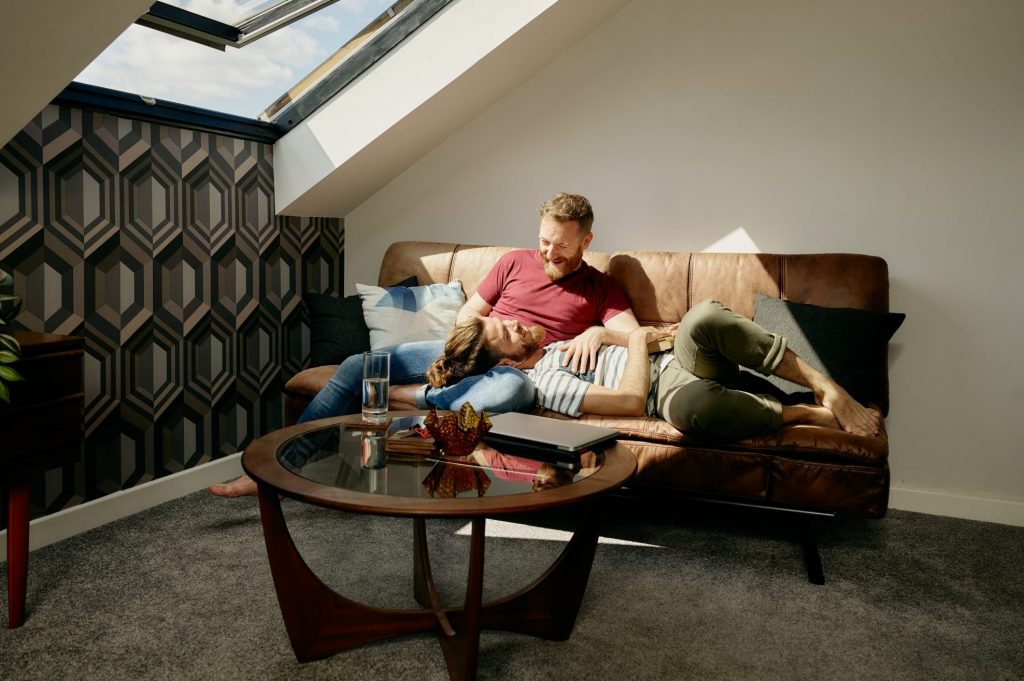Here's What Airbnb Is Confidentially Telling Potential Investors About a New Survey

Skift Take
Is an Airbnb inherently safer than a hotel stay during a post-coronavirus environment? And will Airbnb be better positioned than other companies to lead the future of travel?
Airbnb is seeking new private funding, with about 20 investors expressing interest, but Skift subsequently obtained a confidential memo sent to suitors about a consumer survey as part of the process where Airbnb is making arguments such as those above.
The heart of survey overview is that when travel returns post-Covid 19, travelers will be looking for more control over their accommodations, and that the "inherent" advantages of a short-term rental versus a hotel stay, plus Airbnb's brand reputation, put Airbnb in a better position than competitors to take charge of the future of travel.
On that brand reputation tidbit, one of the survey results stands out: When the survey asked, "In general, to what extent do you trust each of the following companies to do the right thing," those who selected "strongly trust" picked Hilton (52 percent) over Airbnb (50 percent). Marriott also garnered 50 percent. The margin of error was 3.4 percent among Airbnb users surveyed and 9.4 percent among the much smaller number of Airbnb prospects that were tallied.
Get the Latest on Coronavirus and the Travel Industry on Skift's Liveblog
"Because of the advantages inherent to the core product offered, Airbnb is better positioned than others in the sector to build trust and lead the future of travel," the memo states. "In particular, the typical hotel model is based on large numbers of people in a dense location and where the economics for the industry are highly dependent on achieving stained high levels of density within the hotel."
On the other hand, Airbnb gives consumers more control over who they travel with and more control over their space, goes the argument.
Are There Merits in Airbnb's Arguments?
While there may indeed be advantages to fewer numbers of travelers in an apartment or home versus a hotel in a post- or ongoing coronavirus environment, consider that guests would have little knowledge about whether a host might be infected or perhaps the home wasn't adequately cleaned. Sure, there are similar risks in a hotel regarding staff and guests, but perhaps there should be more confidence in knowing a hotel might be more tightly regulated and rigorous about safeguards.
In addition, given the prevalence of professional hosts renting large apartment buildings through Airbnb, the density argument may fall short in many cases.
The Trust Issue
Airbnb's survey, conducted by Decode_M, was heavily weighted toward Airbnb users and those sympathetic to Airbnb, which skewed the results. The online survey, conducted March 13-16 in the United States, polled 832 Airbnb users, and 108 "Airbnb prospects."
Consider how biased the following survey question was: "Which of the following statements do you agree with most? If I had to travel, I would feel more comfortable staying at a hotel where there are lots of other people (26 percent agreed). If I had to travel, I would feel more comfortable staying at an Airbnb where it's just me and my family (74 percent)."
The questions came down to staying in a hotel with "lots of other people" versus an Airbnb "where it's just me and my family." The results are hardly surprising that they favored strangers at a hotel versus family in an Airbnb.
Do the Right Thing
Like other short-term rental providers, Airbnb guests have been the victims of various scams, including nonexistent properties, and bait and switch tactics. That's not to mention the prevalence of party houses, which have led to shootings and deaths, and have evoked the ire of neighbors.
With the survey titled toward respondents sympathetic to Airbnb, the answers on whether participants "strongly trust" a list of companies "to do the right thing," Airbnb (50 percent) scored higher than Expedia (42 percent) and Booking.com (40 percent), but was in a virtual tie, considering the margin of error, with Hilton (52 percent) and Marriott (50 percent).
So when it comes to a mandate for being better-positioned to lead the future of travel post-coronavirus, perhaps potential Airbnb investors might think that Hilton and Marriott would be worthy candidates, as well.
It was likewise hardly surprising that a survey dominated by Airbnb users saw the company come out on top when it came to respondents feeling "very favorable" toward various brands: Airbnb (65 percent), Hilton (56 percent), Marriott (54 percent), Expedia (45 percent), and Booking.com (42 percent).
Potential Airbnb investors will see through the heavily tilted pro-Airbnb messaging of the survey, and its overview.
If Hilton had asked Hilton Honors members similar questions, the responses might have been starkly different than the answers Airbnb elicited.
Airbnb will likely have no trouble raising money, assuming the valuation and terms are palatable to investors, but it's dubious that they will chip in a few hundred million dollars each based on the supposedly inherently advantageous nature of Airbnb's business model.





